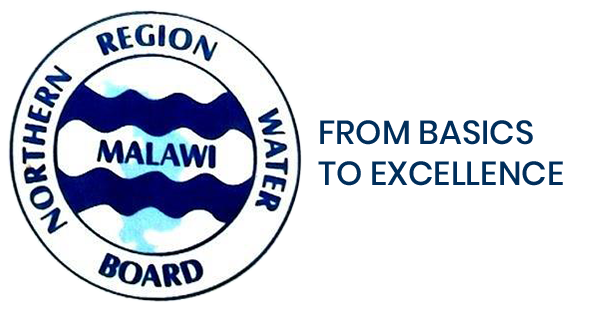- +Malawi NRWB Water Efficiency Project
The Government of Malawi through the Northern Region Water Board is implementing the EUR 24.6 million Malawi NRWB Water Efficiency Project to contribute to socio-economic growth of Malawi through the provision of reliable, sustainable and affordable water supply services in Mzuzu, Ekwendeni and surrounding areas.
The project has four main components:
- Upgrading of Ekwendeni Water Treatment plant and pumping mains. Under this component, the NRWB has engaged SAWA Group Limited to carry out water supply construction works which involve:
- Upgrading and expanding the treatment capacity of Ekwendeni Treatment Plant from 1,000 m3/day to 6,600 m3/day.
- Upgrading of 12 km of pumping mains.
- Construction of storage tanks with a total capacity of 2,750 m3.
The works are expected to cost EUR 7.0 million.
- Upgrading and extension of water supply system in Mzuzu and Ekwendeni. Under this component, the NRWB has engaged Unik Construction Limited to carry out water supply construction works which involve:
- Rehabilitation, upgrading and expansion of 44 km of distribution network in Mzuzu.
- Rehabilitation, upgrading and expansion of 2 km of pumping mains and 13 km of distribution network in Ekwendeni.
- Construction of storage tanks with a total capacity of 1,000 m3.
The works are expected to cost EUR 3.95 million.
- Demand management measures in Mzuzu. This component will involve the following activities:
- Reduction of non-revenue water from 36% to 20%
- Replacement of at 6,600 malfunctioning post-paid meters
- Installation of solar backup power system
- House to house survey in Mzuzu and Ekwendeni
- Development and rolling out of an On-spot billing system
The activities are expected to cost EUR 4.4 million.
- Supply and installation of pre-paid water meters. This component will involve the procurement of 15,000 prepaid water meters at a total cost of EUR 3.85 million.
- The project will construct two raw water intakes across Lunyangwa River in Mzuzu and Ekwendeni in order to store an additional 1,500 Cu.m of water per day as well as raise the Lunyangwa Dam crest by 1.5 metres to increase raw water storage for the dry months by 10,000 Cu.m per day. These activities are expected to cost EUR 4.1 million.
The project is being financed by the European Investment Bank and will increase access to water supply services for a population of 55,400 in Ekwendeni Town and 345,450 in Mzuzu City by year 2030.The project is being implemented from July 2017 to July 2021.
- Upgrading of Ekwendeni Water Treatment plant and pumping mains. Under this component, the NRWB has engaged SAWA Group Limited to carry out water supply construction works which involve:
- +Karonga Water Supply Project
- The Government of Malawi through the Northern Region Water Board is implementing the US$26.7 million Karonga Town Water Supply Project to contribute to the socio-economic growth of Malawi through the provision of sustainable potable water supply in Karonga and surrounding areas.
The project involves rehabilitating, upgrading and expanding the existing Karonga Water Supply System so that it provides reliable and sustainable potable water.
Specifically, the project will:
- Upgrade the water treatment plant from 12,400m3/day to 31,000m3/day
- Upgrade transmission pipelines (a total of 28.3km long pipes of diameters ranging from DN 200 to DN 600)
- Upgrade distribution network by installing 285km long pipelines with diameters ranging from 63mm to 500mm.
- Increase storage tanks capacity by 10,000m3
The extent of the new water supply system, whose design year is 2035 will extend up to Pusi to the north (33km), Mlare/Ngala to the south (24km) and Mpata (6km) to the west of Karonga Boma.
The project is being funded by Opec Fund for International Development (OFID) with the sum of US$15 million, the Arab Bank for Economic Development in Afrca (BADEA) with the sum of US$10 million and the Republic of Malawi with the sum of US$1.7 million and will be implemented over a period of 28 months.
The project will increase access to potable water and improve health and sanitation to over 184 000 people.
- +Nkhatabay Town Water Supply and Sanitation Project
- The Government of Malawi through the Northern Region Water Board is implementing the US$30.55 million Nkhatabay Town Water Supply and Sanitation Project to contribute to the socio-economic growth of Malawi through the provision of sustainable potable water supply and sanitation services in Nkhatabay and surrounding areas.
The project involves rehabilitating, upgrading and expanding the existing Nkhatabay Town Water Supply System and provision of solid and liquid waste management facilities in order to provide reliable and sustainable potable water and sanitation services.
Specifically, the project is implementing the following:
- Water Supply
- Upgrading the water treatment plant from 1,450m3/day to 20,000m3/day
- Upgrading the transmission pipelines (a total of 29km long pipes of diameters ranging from DN 110 to DN 400)
- Upgrading the distribution network by installing 122km long pipelines with diameters ranging from 63mm to 400mm.
- Increasing storage tanks capacity by 8,050m3
The extent of the new water supply system, whose design year is 2040 will extend up to Kapingama to the north (6.2km), Chisu to the north- east (17.7km), Mpamba (through Pundu) to the west (19km), Chombe to the south-west (15.1km), Chizi Point (through Bwelero) to the south-east (11km) and Sanga to the south (25.9km).
- Sanitation
- Construct a liquid waste treatment facility (Sludge ponds) and Solid waste dumpsite
- Procure liquid and solid waste collection and disposal vehicles (skip carriers, vacuum tanker, handling tools)
- Conduct Sanitation and Hygiene Promotion campaigns
The project is being funded by African Development Bank (AfDB) with the sum of US$15.1 million (Grant), Opec Fund for International Development (OPEC) with the sum of US$12 million (Loan) and the Republic of Malawi with the sum of US$3.45 million and will be implemented over a period of 42 months.
The project will increase access to potable water and improve health and sanitation to over 105 000 people
